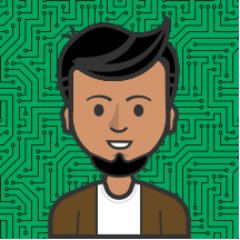

KERNEL is an 8-week, invite-only program for top tech talent looking to build relationships, products, and companies in blockchain and Web 3.
100 talented peers from around the world will join the KERNEL this June, and will be surrounded by leading mentors from the Web3 community. Our goal is to provide KERNEL Fellows with opportunities to learn, build relationships, and provide funding opportunities for the products they build, both from Web 3 companies and investors. Apply here as an individual. Or apply here as a team. Supported By Gitcoin 🌳
The Gitcoin team is putting our full weight behind the KERNEL Fellowship. It is a community initiative, ultimately, aiming for broad support from those interested in it’s mission and it’s goals.
Our mission is to grow open source, and we’ve found a deep well of great open source projects and brilliant builders in the blockchain ecosystem in the past 3 years. We believe the future will be open source, and the blockchain community will have a large part to play in its development.
Over the course of 2 years, we’ve helped seed $5M in open source software development, mostly in the Web3 space. We have a network of 40,000 Gitcoiners who are hackers, founders, builders, and supporters of open collaboration.
The two paths we are best known for are Gitcoin Hackathons and Gitcoin Grant rounds, which ultimately led us to KERNEL.
During Gitcoin Hackathons, we’ve built 500+ projects alongside 3,750 unique hackers in the last year, many on their first journey into Web 3. The biggest one yet, co-sponsored by Coindesk and Ethereal, has seen 67 projects built in 3 weeks by some of the top up-and-coming developers in crypto. The New York Blockchain Week Hackathon has 69 active projects!
In Gitcoin Grants rounds, 700+ projects have raised $2MM+ in funding over 5 ‘Gitcoin Grants’ rounds. These rounds have given early funding to projects now VC-funded projects like Uniswap and Optimism, and continue to fund core infrastructure projects like Prysmatic Labs and Tornado Cash. And many others!
The last round saw a record $492K allocated in 2.5 weeks. Vitalik Buterin, co-founder of Ethereum, wrote a bit about it here. Why KERNEL?
With our experience in both hackathons and grant funding, we’ve noticed a few things.
Lone Geniuses — we consistently come across ridiculously talented developers building genuinely amazing stuff in silos
Composability Is Real — The top companies in crypto are made up of founders who are idea machines. By matching them with talented builders, we can work together to build the Web3 we want to see.
A Room For Newcomers — We need talented builders to join as we build an open internet. For the crypto-curious developer, designer, or builder who hasn’t joined the ecosystem yet, the home base you need is a KERNEL of smart, motivated people.
We want a room for each of these groups (companies, web 3 veterans, and talented newcomers) to easily meet each other and enable collaboration. We’ll be bringing these people together for Genesis Block, the first KERNEL cohort. What is KERNEL?
The goal of the KERNEL fellowship is to strengthen the ecosystem by bringing together 100 highly ambitious people in a private room with top innovators in building the new, open Web.
The first KERNEL, Genesis Block, will be comprised of ~100 fellows from around the world. The program runs 8 weeks, with an expected commitment of 10 hrs per week. Successful applicants will be high capacity, extremely likely to succeed in web 3, and fully engaged.
The program will include eight modules, including deep dives into the history of blockchains, the Web 3 movement, decentralized finance, community building, and token economics. Twelve classic works in technology, open source software, and finance will be reviewed and discussed.
Each KERNEL fellow is expected to build a project or product over the course of eight weeks. You are not required to apply with a project, but you can if you have one! Companies who are involved will share design prompts and projects they’d like to see built with KERNEL Fellows and with the broader ecosystem.
Expectations of the cohort are straightforward:
Participate earnestly in the program 🙋🏻♀️
Make friends with cohort mates 🎎
Read weekly materials in advance of the Thursday firesides 📖
Join the topical Juntos hosted industry leaders 👯🏻♀️
Check out the great list of project suggestions 🚧
Love your adventure and learn at least one thing by the end of the 8 weeks 🚀
What you can expect from us 1. Thursday’s Fireside Chats 💬 Each Thursday will be headlined by a session with web3 luminary. 2. Weekly Juntos 🥘 Junto’s — a concept coined by Ben Franklin — are small conversations meant for candid, generative talks. 3. Weekly Check-ins 📅 check-ins with fellows on their progress, their goals, and their interests. 4. Funding Opportunities 💰 Funding via company sponsorships for specific projects and Gitcoin Grants. While a project from each fellow is an expectation, the goal is to build lifelong relationships amongst the 100 members, the mentors, and selfishly, ourselves. And, perhaps, hundreds or thousands to follow.
If you’re considering KERNEL — we’d ask one question:
If you had 8 weeks with 150 great minds supporting you, what would you want to build?
Read More
 Scholarships
Scholarships Making sure we put both minds and hearts from all over the world together in one place, no matter your circumstances.
 What is KERNEL's Most Fertile Path?
What is KERNEL's Most Fertile Path? 
One way of looking which will be expanded greatly by our fellows over the years to come.
 Free Learn
Free Learn A novel experiment which combines narrative encoded in a mnemonic medium with economic incentives to see if we can solve the problem of funding public tools for transformative thought.